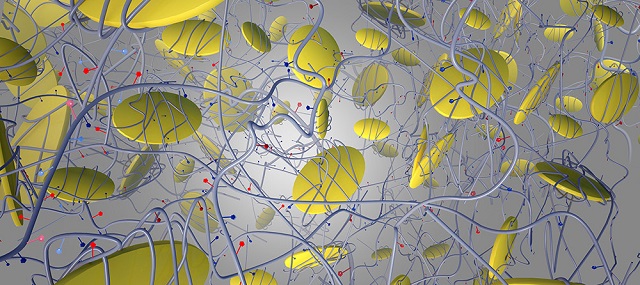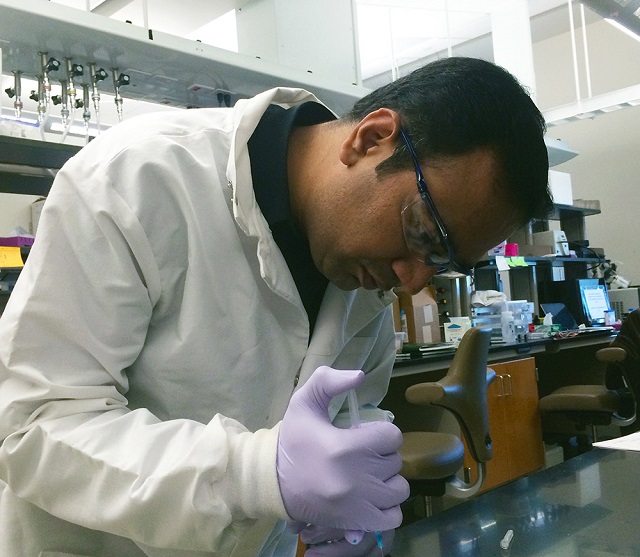 Tiny nanosilicate particles that are 100,000 times thinner than a sheet of paper are embedded in a collagen-based hydrogel, forming a material that helps trigger bone formation within the body.
Tiny nanosilicate particles that are 100,000 times thinner than a sheet of paper are embedded in a collagen-based hydrogel, forming a material that helps trigger bone formation within the body.
A team of researchers from Texas A&M University has developed a novel material capable of activating cells to aid bone formation, paving the way to treat bone defects and breaks that are hard to heal.
According to Akhilesh Gaharwar, assistant professor of biomedical engineering at Texas A&M, the new research developments by the team are likely to transform the treatment methods used by doctors for broken bones, which are complex to heal and require bone graft procedures.
Gaharwar explains that the novel biomaterial is made up of nano-sized, 2D particles embedded inside a gel, and is capable of stimulating bone growth by means of an intricate signaling mechanism without the need of proteins referred to as growth factors. He adds that traditional treatments generally use growth factors, but the use of growth factors in large quantities for cell stimulation can cause some serious side effects.
We are trying to overcome these problems by avoiding the use of growth factors as we recapitulate the natural bone-healing process. Our material is a totally different, alternative strategy in which by using minerals we can induce differentiation in cells and promote formation of bone-like tissue.
Akhilesh Gaharwar, assistant professor of biomedical engineering at Texas A&M

Those minerals are mainly magnesium, orthosilicic acid and lithium, and are integrated into miniscule nanosilicate particles, which have a thickness 100,000 times less than a sheet of paper. The ultrathin nanoparticles are embedded in a collagen-based hydrogel, which is a biodegradable gel employed in a number of biomedical applications as it is compatible with the human body.
The research findings have been published in the ACS Nano scientific journal. The National Institutes of Health and the National Science Foundation supports the work.
References